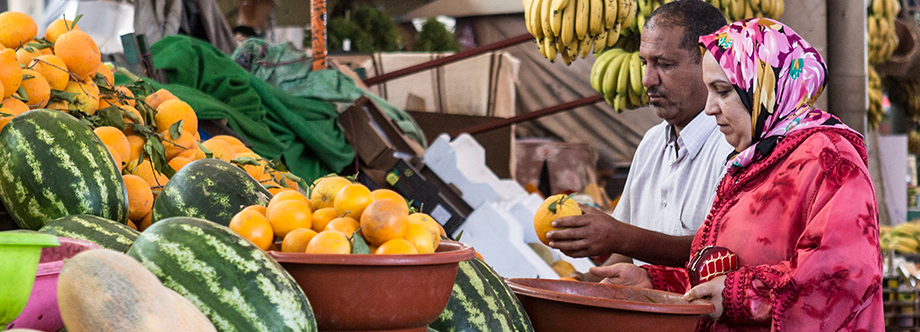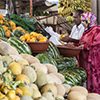Trade, food security and sustainable development
The 2030 Agenda recognizes that trade is key to addressing food security, nutrition and sustainable agriculture. International agri-food trade can help balance food deficits and surpluses across countries, improve availability of diverse foods, and contribute to price stability. Yet, greater trade openness may also pose challenges, especially for small scale agri-food value chain actors. FAO supports its Members by providing evidence and strengthening capacities in both trade and market-related policies and inclusive agricultural systems that contribute to the achievement of Zero Hunger (SDG 2) as well as climate change adaptation and mitigation efforts.
Key messages
| Trade policy has a critical role to play in eradicating global hunger by 2030, but trade alone cannot address all of the socio-economic and political challenges that influence food security and nutrition. | |
| Sound policies for food security and nutrition balance a reliance on trade with domestic production to ensure stable food availability and accessibility. At the same time, policies should raise income levels for the rural poor and improve nutritional value in food chains. | |
| FAO emphasizes evidence-based decision-making to ensure that trade and trade policies contribute to the achievement of food security and nutrition. |
Featured Resources
-
-
Public food stockholding — A review of policies and practices
Published: Oct 2021
-
Trade and Sustainable Development Goal 2 – Policy options and their trade-offs
Published: June 2020
-
State of Agricultural Commodity Markets (SOCO) 2020
Agricultural markets and sustainable development: Global value chains, smallholder farmers and digital innovations
Published: June 2020
-
Strengthening sector policies for better food security and nutrition results: Trade
Published: February 2018
-
The State of Agricultural Commodity Markets 2015–16
Trade and food security: achieving a better balance between national priorities and the collective good
Published: January 2015













